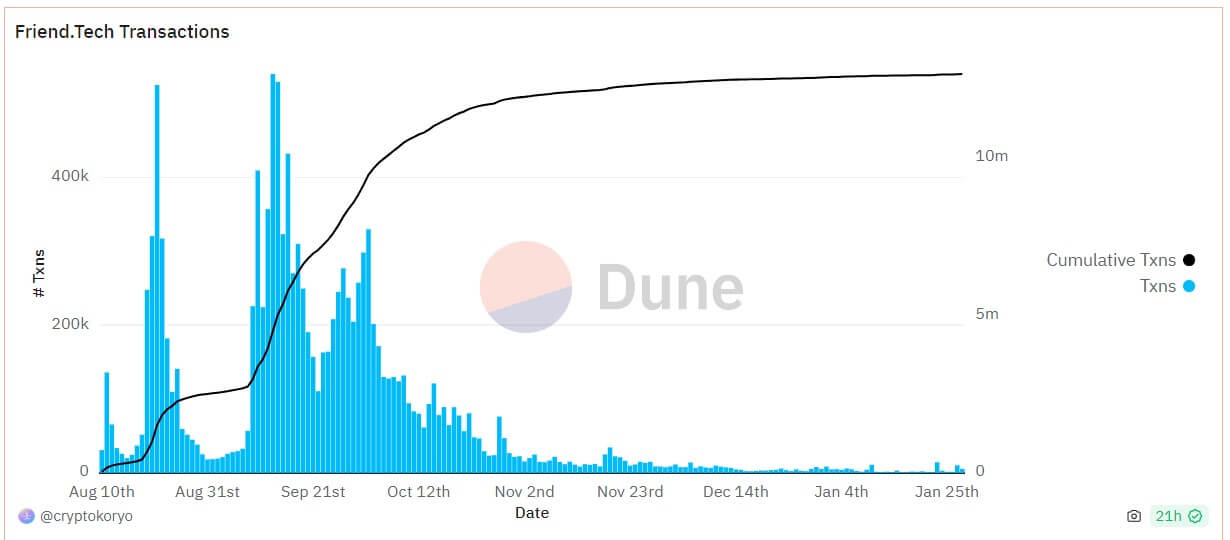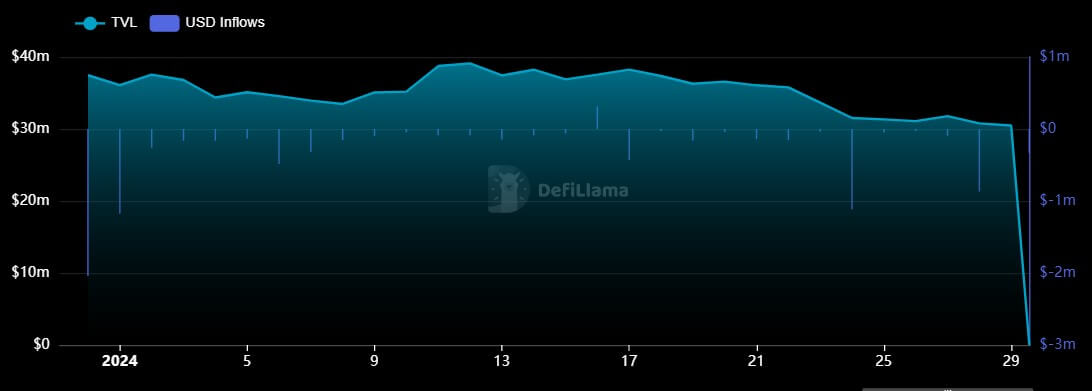Decentralized social media protocol Friend.Tech captured attention last year but has noticeably faded from the radar recently.
CryptoSlate, using Dune Analytics data compiled by 21.co, discovered a concerning trend – the platform’s failure to attract new users, coupled with indifference from its existing user base. On Jan. 28, the platform garnered a mere 19 new users engaged in at least one transaction, a stark contrast to its peak of over 70,000 users in September.
A separate dashboard by Cryptokoryo sheds light on the extent of the downturn. On the same date, Friend.Tech recorded only 5,544 transactions, signaling a staggering 99% decrease from its peak volume of almost 540,000.

Adding to the downward spiral, DeFillama’s data reveals a consistent negative outflow throughout this month.
Per the data, Friend.Tech experienced positive USD flow only on Jan. 16, with $313,000 entering the platform. However, more than $5 million flowed out on other days, significantly dropping the total value of assets locked on the platform to $30 million.


Moreover, this decline is further reflected in the fees generated by the network, plummeting from a daily average of nearly $1 million to a mere $50,000 in the last two days.
‘Biggest lowlight’
Several reasons could be blamed for Friend.Tech’s falling numbers. However, issues began when multiple users suffered sim-swap attacks due to the platform’s lax security. CryptoSlate reported that at least $20 million in the platform users’ assets were vulnerable to these attacks.
While efforts to address security concerns were made promptly, this incident reflected the platform’s challenges in keeping pace with bug fixes and implementing essential policies for its rapidly expanding user base.
The platform’s viral success also spawned copycats like Stars Arena on other blockchain networks, including Avalanche. DeFillama data shows these protocols are also struggling for adoption and use.
Teng Yan, Head of NFT Research at Delphi Digital, called Friend.Tech’s setback the “biggest lowlight” of the past year. He highlighted the project’s potential to make crypto mainstream but criticized its team’s execution.
“[Friend.tech] could have been a top consumer app bringing crypto mainstream. An on-chain reputation layer built on top of existing social graphs. Great idea but poor execution,” Yan added.
Friend. Tech’s viral growth
Friend.Tech introduced an innovative way for users to monetize their popularity in the crypto space, allowing users to buy and sell “keys.” These keys enabled buyers to send private messages to sellers.
As a result, several high-profile figures, both from the cryptocurrency world and the broader entertainment industry, used Friend.Tech to connect to their community, and the platform was driving transactions on Base, the layer2 network it was built on.
Despite this initial success, the blockchain-based social network faced a rapid decline, losing 95% of its activity within a month of launch. Yet, a revival occurred in September, with daily trading volumes nearing $10 million. At its peak, the protocol boasted a TVL exceeding 30,000 ETH ($50 million), outperforming giants like Uniswap and the Bitcoin network in fees generated.
#Friend #Tech #viral #success #virtual #ghost #town
#bitcoinnews







